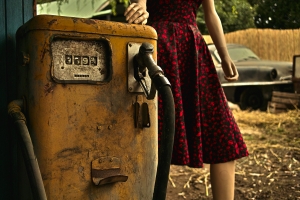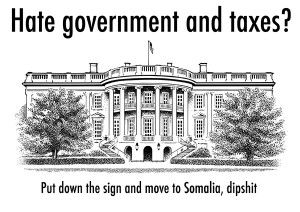Cairo did it, why can’t we?
I wonder if that was the thought process behind this new fad to make Facebook groups and events to boycott big oil this March? Obviously it’s not that simple; it never is. Sarah Thompson, one of the fad starters, claimed that she was compelled to create the event in order tell oil companies that she, and anyone who joined her, meant business. And while I applaud hers and others’ efforts in trying to stick it to the man, I’m absolutely baffled as to how they believe this will change anything.
Here are some of the flaws in the reasoning behind Facebook boycotting in America against big oil, some of which you might have heard from other pundits about the topic, but most are just common sense—something ideology, the driving force behind the fad, doesn’t recognize. For one, Cairo has a history of using Facebook as a tool to organize people to protest their government. That wasn’t something that just happened within the past couple of months; they actually successfully—in relative terms—accomplished a similar feat back in 2008. America, on the other hand, uses Facebook and, to a larger extent, the internet in general to waste time on, not to make a difference (besides a few anomalous examples). It’s a leisurely activity to us, really.
Another thing, one day of not buying gas will make little to no impact. While oil companies do make a significant profit from selling to us, the average citizen, overpriced gas, they do have other avenues of revenue (hey, that rhymed, somewhat!). And, again, like most have said, if you don’t buy gas on March 14th then you’ll just have to buy gas the day after, or before, or sometime in the future. The oil companies are not ignorant of this, and they probably could give a rat’s ass how many people actually participate in the self-indulgent fiasco. They know we’re dependent on gas.
There are numerous other methods to hurt big oil, all of which have been stated yet none of which have been truly listened to other than by a small, fringe minority. These methods include buying cars that aren’t gas guzzlers (even electric, perhaps), keeping the window up so that you don’t create as much drag and thus have to accelerate as much, keep your tires inflated, perform regular maintenance under the hood of your car, walk, ride a bike, take the bus, don’t speed. Every five miles you go over 55 mph you lose anywhere between 7 to 23% more gas—depending on what car you drive—which adds up. It truly is not worth it to speed in order to get to your horrible job a couple of minutes early, or late. The road to change is paved in patience. And this Facebook fad is just another example of America’s ‘I want change right now! Give it to me!’ attitude. If you think about it, a toddler has the same attitude when throwing a hissy fit. When it comes to gas, everyone in America throws a temper tantrum, and big oil acts like the oddly stoic parent sitting in the next room (looking at its own reflection), waiting for the child to wear himself out.
While I do have my many disputes with the Facebook fad—obviously wanting long term effects, rather than immediacy—I will go ahead and state that what these people are doing is cause for celebration. Why? Well, if we can all organize in as massive a way as possible, which will hopefully make a minimal impact on big oil, then it’s a good start. This particular fad could be the stepping stone to realizing a much larger goal. And that’s no small feat. So yeah, it’s easy to find a hole in some of the logic behind Facebook boycotts in America, but it should/could be rewarding if actualized. But the actualization will not be in just one day. Change will only happen if we implement personal responsibility and continue the momentum of the movement into daily life.
Facebook Gas Boycott and Unicorns,




